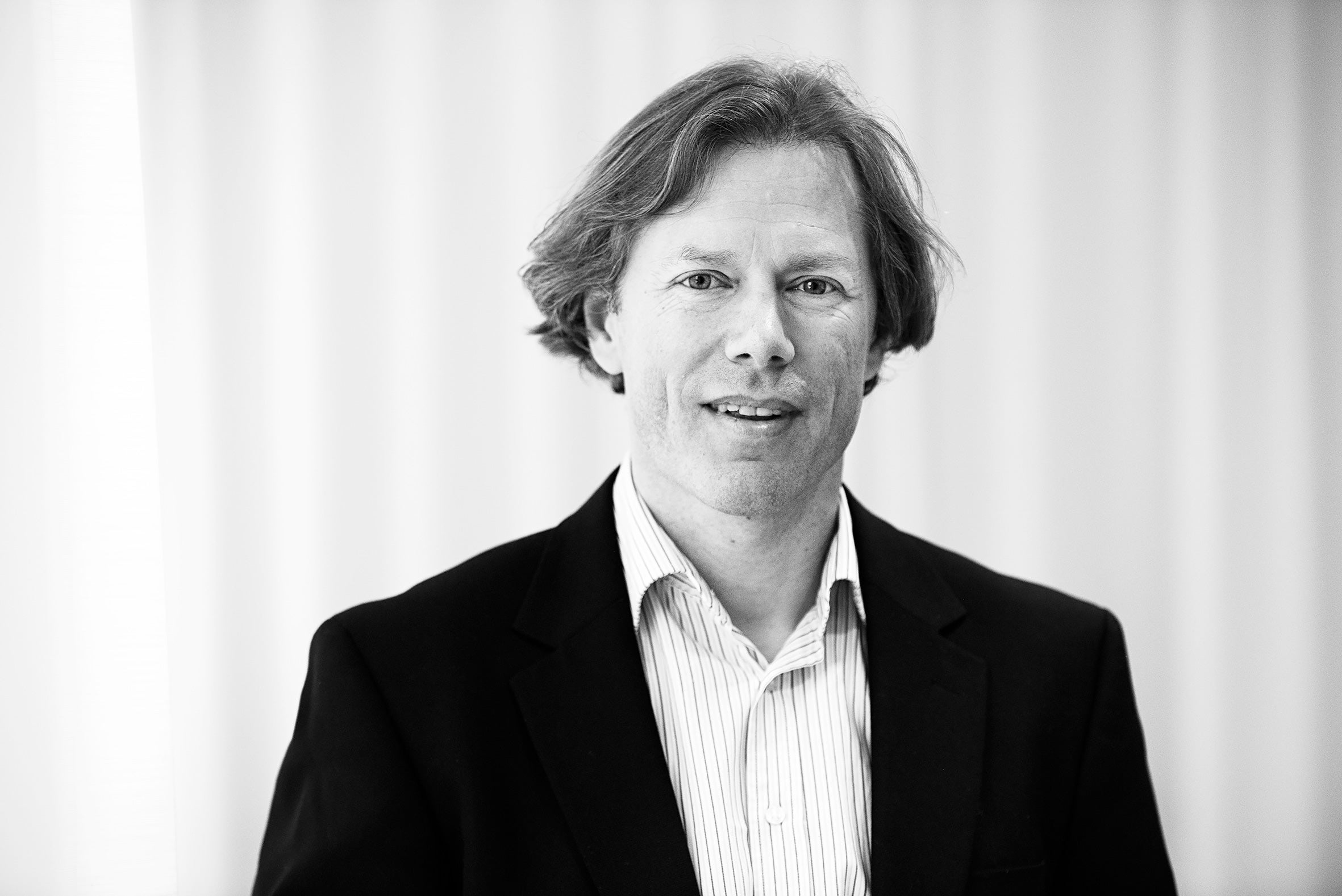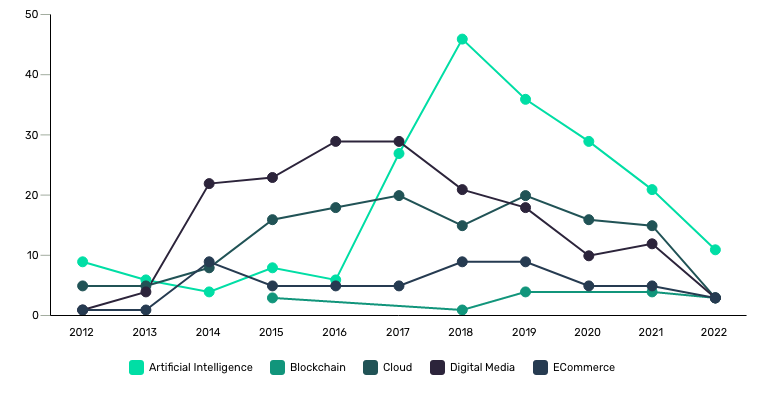
Lars Knoll is the CTO of The Qt Company, the Finnish software developer. Some readers may know The Qt Company – pronounced “cute” – by its old name, Trolltech.
Founded in 1994, The Qt Company has gone through a string of ownerships. Nokia owned The Qt Company between 2008 and 2011. The phone maker sold it to Finnish software company Digia in March 2011.
The Qt Company went public in 2016 as a wholly owned subsidiary of Digia in 2016 but was spun out as an independent company one year later. It currently has a market cap of €2.46bn.
The Qt Company is part of a burgeoning Finnish tech sector. There have been 578 venture financing deals involving tech companies in Finland since 2012, worth a total of $4.08bn, according to GlobalData’s data. Since 2016, artificial intelligence has dominated these deals with cloud running a close second. Other notable industries getting financed in Finland are digital media, ecommerce and blockchain.
The Qt Company has its core research and development departments in Oslo, Norway, and that’s where Knoll, as CTO, works.

In the latest Q&A in our weekly CTO Talk series, Knoll reveals his own journey to become a leader at The Qt Company, why he’s excited about the cloud and how his dad nurtured his interest in technology.
How well do you really know your competitors?
Access the most comprehensive Company Profiles on the market, powered by GlobalData. Save hours of research. Gain competitive edge.

Thank you!
Your download email will arrive shortly
Not ready to buy yet? Download a free sample
We are confident about the unique quality of our Company Profiles. However, we want you to make the most beneficial decision for your business, so we offer a free sample that you can download by submitting the below form
By GlobalDataEric Johansson: Tell us a bit about yourself – how did you end up in your current role?
Lars Knoll: I’m originally from Germany, but have been settled in Norway for the last 20 years, where I now live with my wife and two children.
Thinking back, I probably started on my current path when I was at university where I became interested in Linux and open source in general. I first learned about Qt which was available as open source then. Through these interests I got to know a lot of people who worked for Qt, which at the time was called Trolltech, and eventually started working for the company as a software engineer. I worked my way up to VP of engineering, followed by stints at Nokia and Digia, before returning to Qt as CTO.
I am known in the industry for a project that I started called KHTML, a web browser engine that Apple ultimately picked up for WebKit. The chances are that any browser that you are using today is based on code I started writing in 1999.
What’s the biggest technology trend you’re looking at in 2022?
There are many trends that excite me, but the cloud is becoming more and more interesting for us currently. Predominantly, Qt has been developed to make development of client side applications for desktop, mobile and embedded devices easier, but we are seeing more and more interest in using our technology to create solutions in the cloud.
Ultimately, our mission is to make software development simple, fun and easy to maintain. A lot of good solutions have been developed to tackle the problem for user facing applications, but the cloud side is in many cases still rather rough. It’s going to be very interesting to see how much progress can be made in that regard and whether breakthroughs in the industry will enable organisations to make maintaining and deploying software in the cloud easier in the long-term.
How do you separate hype from genuine innovation?
After 20 years in the industry, you often have a good instinct for this kind of thing. You get a hunch about whether the tech behind something is truly innovative or whether it’s just fluffy words. Sometimes it requires looking at a problem, then dissecting and playing around with the solution to separate hype from innovation. Often it comes down to whether it actually solves a real world problem. For software based innovation, I’ll check out things like implementation and the code itself to decide whether something is worth getting excited about or not.
Where did your interest in tech come from?
For me, it was very early in life. My dad was a physics professor and he always encouraged my interest in tech. I used to have a Commodore 64 which I played games on, and back then we used to use typewriters to send faxes and that kind of thing. My dad challenged me to write a driver for such a typewriter for the Commodore 64 in assembly, so from an early age I was trying my hand at technical tasks.
Later in life, I really began to appreciate just how pervasive software was becoming while I was studying for a PhD in physics. Then, of course, we experienced the boom in the late 90s and early 2000s, which was a very exciting, fast-paced time with lots of innovation and new things happening all the time. It was a thrilling time to be involved in tech – you had to learn every day and really felt like you had a chance to change the world around you.
What one piece of advice would you offer to other CTOs?
Always be curious and listen to your engineers. I’ve known many CTOs who think they know best, but usually our engineers are the ones who really know what is going on and what is actually achievable.
What’s the biggest technological challenge facing humanity?
The transition to sustainable energy – no doubt about it. The environment has to be our number one priority. Of course, phasing out fossil fuels is not just a technological challenge, it is a societal challenge too. That said, the tech obstacles involved in cleaning up the environment are huge.
What’s the strangest thing you’ve ever done for fun?
I’m not sure about strange, but the scariest experience of my life was sitting in a car alongside a professional rally driver as he raced through the Swedish woods during winter. I’ve never been so terrified in my life. We were going so fast and missing wooden ski poles in the snow by inches. It was incredibly exhilarating!
What’s the most important thing happening in your field at the moment?
It’s actually quite hard to define our field sometimes. We make tools that any software engineer can use, so we could be talking about the entire software world. One thing that I’ve noticed has become more pervasive in certain parts of that world is machine learning. We’re currently exploring how we might be able to make use of it at Qt because it could really change the industry and create many different ways of developing software.
In another life you’d be?
I’m pretty happy with the choice I’ve made and what we’ve managed to achieve. In another life, I think I would have made a good scientist, but after my PhD I was disillusioned by how academia works. It can take years of non-permanent work before you are able to secure a professorship.







